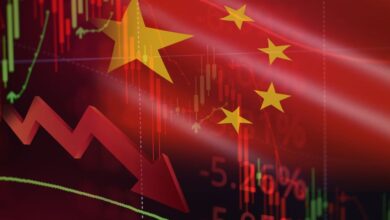Asian Stock Markets Navigate Economic Headwinds with Varied Results

Asian stock markets have presented a diverse performance as global economic developments unfold. Chinese indexes, including the Shanghai Shenzhen CSI 300 and Shanghai Composite, have shown a notable rebound, with increases of 0.8% and 1.5% respectively. This positive movement is attributed to the People’s Bank of China’s recent decision to cut the reserve requirement ratio for local banks. The central bank’s action is designed to inject more liquidity into the economy, with the anticipation of further measures to bolster economic growth.
The overall positive trend, the Hang Seng index in Hong Kong experienced a more modest rise of 0.6%. The electric vehicle sector faced challenges, with major manufacturers such as NIO Inc., Li Auto Inc. and Xpeng Inc. seeing declines. This downturn followed Tesla Inc’s report of lower-than-expected earnings for the fourth quarter, which raised concerns about slowing demand in the electric vehicle market and the potential for price reductions that could affect profit margins industry-wide.
In contrast, Australia’s ASX 200 edged up by 0.4%, reflecting optimism surrounding China’s economic measures. The Nifty 50 index in India was also poised for a positive start after a 1% rebound on Wednesday. Caution prevailed across broader Asian markets in anticipation of the European Central Bank meeting and the release of key US fourth-quarter GDP data.
On the other end of the spectrum, South Korea’s KOSPI index experienced a decline of 0.6% despite a slight increase in GDP growth for the fourth quarter. The overall growth rate, however, remained subdued. In Japan, the Nikkei 225 fell by 0.2%, and the broader TOPIX index remained unchanged. Market participants engaged in profit-taking, interrupting the recent rally in Japanese stocks. This shift came after comments from Bank of Japan Governor Kazuo Ueda, who hinted at a potential move away from the central bank’s long-standing dovish policy stance.
The mixed signals from the Bank of Japan have prompted a more cautious approach among market participants. Previously, these investors had driven Japanese stocks to 34-year highs. While the exact timing of any policy changes is uncertain, the governor’s remarks have been sufficient to cause a reassessment of the bullish trend in Japanese equities.
Asian markets have demonstrated resilience amidst global economic challenges, with China’s proactive monetary policies contributing to a rebound in its stock indexes. Nonetheless, the landscape remains intricate, with certain sectors and regions encountering obstacles due to a variety of factors, including corporate earnings and central bank policy directions. As the global economy continues to navigate these developments, market dynamics evolve, underscoring the interconnectedness of international financial systems. The unfolding events will likely continue to influence the performance of markets across Asia, as they respond to both regional and global economic cues.
Source link



